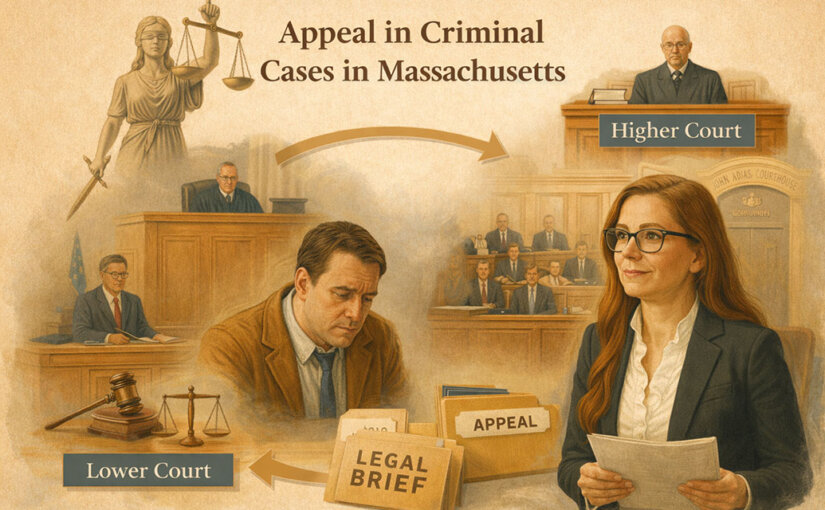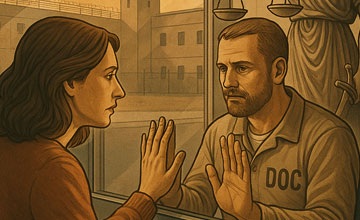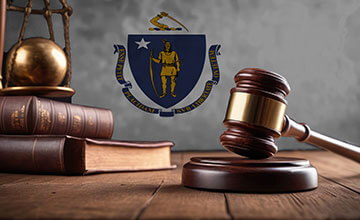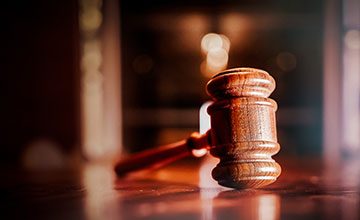A conviction doesn’t have to be the end of your story. Even after a jury finds you guilty or you’ve been sentenced, you still have legal options—and one of the most important is filing an appeal.
The criminal appeal process in Massachusetts allows you to challenge errors that may have occurred during your trial, argue that your rights were violated, or present new legal arguments that could lead to a different outcome.
It’s not a second trial, but it can be a second chance.
Appeals are complex, time-sensitive, and governed by strict procedural rules. Missing a single deadline or failing to properly preserve an issue can close the door on relief permanently. That’s why working with an experienced Massachusetts criminal defense attorney who understands appellate law is critical.
What is a Criminal Appeal in Massachusetts?
A criminal appeal is a legal process where a higher court reviews a lower court’s decision to determine whether legal errors affected the outcome of your case. It’s not a new trial. No new evidence is presented, no witnesses testify, and there’s no jury.
Instead, the appellate court examines the trial record—transcripts, motions, rulings, and exhibits—to decide whether the trial judge or prosecutors made mistakes that require reversal, a new trial, or a modified sentence.
In Massachusetts, most criminal appeals are initially filed with the Massachusetts Appeals Court, located at the John Adams Courthouse in Boston. The Appeals Court is an intermediate appellate court that reviews decisions from the District Court, Superior Court, and other trial court departments across the state.
If you’re appealing a conviction for first-degree murder, your appeal goes directly to the Massachusetts Supreme Judicial Court (SJC), the state’s highest court. The SJC also hears cases through a process called “further appellate review” if a party loses in the Appeals Court and requests additional review.
Both the defendant and, in limited circumstances, the prosecution can file an appeal. However, the vast majority of criminal appeals are filed by defendants challenging their conviction or sentence.
How Long Do You Have to File a Criminal Appeal in Massachusetts?
In most criminal cases, you must file a notice of appeal within 30 days of the entry of sentence, under Massachusetts Rules of Appellate Procedure, Rule 4. Plus, some appeal routes (e.g., certain District Court/Appellate Division appeals) use shorter filing periods, so consult the applicable rule or an attorney immediately.
The clock starts ticking on the day the judge imposes your sentence, not the day you were convicted. If you filed a post-trial motion (such as a motion for a new trial under Massachusetts Rules of Criminal Procedure, Rule 30), the 30-day window to appeal doesn’t begin until the judge rules on that motion.
Missing this deadline can be devastating. If you don’t file your notice of appeal within 30 days, you lose your right to appeal in most cases.
Extensions are rare and only granted for typically unusual reasons, such as attorney abandonment or a complete breakdown in the legal process.
Even if you’re still deciding whether to appeal, you should file a notice of appeal within the 30-day window to preserve your rights. You can always withdraw the appeal later if you choose not to move forward.
Valid Grounds for Appeal in Massachusetts
Not every trial mistake qualifies as grounds for an appeal. To succeed, you must show that a legal error occurred and that the error likely affected the outcome of your case. Courts call this “prejudicial error.”
Here are the most common grounds for criminal appeals in Massachusetts.
1. Legal errors during trial. These include mistakes made by the judge, such as:
- Giving improper jury instructions
- Admitting evidence that should have been excluded
- Excluding evidence that should have been admitted
- Allowing improper closing arguments by the prosecutor
2. Insufficient evidence. You can argue that no reasonable jury could have found you guilty based on the evidence presented at trial.
3. Constitutional violations. Any violation of your constitutional rights—such as an illegal search, denial of the right to confront witnesses, or violation of Miranda rights—can be raised on appeal if it was properly preserved in the trial record.
One key detail here is that issues must be “preserved” by objecting during trial. If your lawyer didn’t object at the time, the appellate court may refuse to consider the issue unless it rises to the level of a “substantial risk of a miscarriage of justice.”
The Criminal Appeal Process in Massachusetts
The appellate process follows a specific sequence of steps. Here’s what to expect:
1. Notice of Appeal
Within 30 days of sentencing, you (or your attorney) must file a notice of appeal with the clerk of the trial court. This is a short document that formally notifies the court and the prosecution that you’re appealing.
2. Ordering the Trial Transcript
You’ll need to order a transcript of your trial proceedings from the court reporter. This can take weeks or even months, depending on the length of the trial. The transcript is expensive, but it’s essential—appellate courts rely on it to review what happened during trial.
3. Assembly of the Record
The trial court clerk assembles the “record on appeal,” which includes the transcript, motions, exhibits, and other relevant documents. Under the Massachusetts Rules of Appellate Procedure, Rule 9, the clerk has 21 days to complete this process.
4. Appellant’s Brief
Once your appeal is docketed in the appellate court, you have 40 days to file your brief. The brief is a written legal argument that explains:
- What errors occurred during trial
- Why those errors violated the law
- Why the conviction or sentence should be reversed
This is where strong legal writing and research matter most. A well-crafted brief can make or break an appeal.
5. Appellee’s Brief
The prosecution (called the “appellee”) has 30 days to file a response brief defending the conviction.
6. Reply Brief (Optional)
You can file a short reply brief responding to the prosecution’s arguments, but this is optional.
7. Oral Arguments
In many cases, the appellate court schedules oral arguments where attorneys for both sides present their case before a panel of judges. In the Appeals Court, this is typically a panel of three justices. In the Supreme Judicial Court, there are usually five to seven justices.
Oral arguments are typically limited to 10-15 minutes per side, except in first-degree murder cases, which receive around 20 minutes per side. Judges often interrupt with questions, so preparation is key.
8. Decision
The appellate court issues a written opinion explaining its decision. This can take anywhere from a few weeks to several months after oral arguments.
What Are Possible Outcomes of a Criminal Appeal?
When the appellate court issues its decision, several outcomes are possible:
- Conviction affirmed – The court agrees with the trial court’s decision, and your conviction and sentence stand. This is the most common outcome.
- Conviction reversed – The court finds that errors require overturning your conviction. Depending on the nature of the error, the charges may be dismissed entirely, or the case may be sent back for a new trial.
- Remanded for new trial – The court orders a new trial in the lower court. This gives you another opportunity to present your defense, often without the errors that affected the first trial.
- Sentence modified – Your conviction stands, but the appellate court reduces or adjusts your sentence.
- Partial reversal – Some charges are reversed while others are upheld. This often happens in cases with multiple counts.
A well-prepared appeal—one that identifies clear legal errors and presents them persuasively—can lead to a second chance or a significantly better outcome.
Contact Fogarty Law for Experienced Appellate Representation
If you’ve been convicted and believe errors were made during your trial, don’t wait. The 30-day window to file a notice of appeal closes fast, and once it’s gone, your options become extremely limited.
At Fogarty Law, Attorney Courtney K. Fogarty approaches every appeal with the same level of preparation and strategic thinking that made her successful as a prosecutor. We offer a free 60-minute consultation to review your case, explain your options, and help you decide on the best path forward.
Whether you’re exploring an appeal, considering a post-conviction motion, or just need clarity on what comes next, Courtney will provide honest, strategic guidance.
Call Fogarty Law today at (508) 317-0339 to get started. Your conviction doesn’t have to be the final word.









